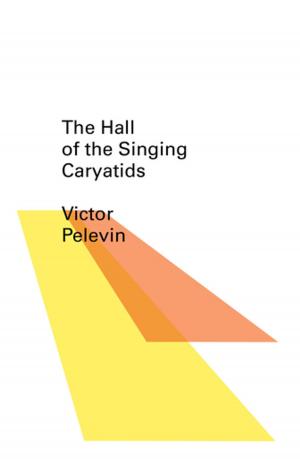| Author: | Mathias Énard | ISBN: | 9780811227056 |
| Publisher: | New Directions | Publication: | November 27, 2018 |
| Imprint: | New Directions | Language: | English |
| Author: | Mathias Énard |
| ISBN: | 9780811227056 |
| Publisher: | New Directions |
| Publication: | November 27, 2018 |
| Imprint: | New Directions |
| Language: | English |
Financial Times Book of the Year
An adventure of Michelangelo in Constantinople from the “mesmerizing” (New Yorker) and “masterful” (Washington Post) author of Compass
In 1506, Michelangelo—a young but already renowned sculptor—is invited by the Sultan of Constantinople to design a bridge over the Golden Horn. The sultan has offered, alongside an enormous payment, the promise of immortality, since Leonardo da Vinci’s design had been rejected: “You will surpass him in glory if you accept, for you will succeed where he has failed, and you will give the world a monument without equal.”
Michelangelo, after some hesitation, flees Rome and an irritated Pope Julius II—whose commission he leaves unfinished—and arrives in Constantinople for this truly epic project. Once there, he explores the beauty and wonder of the Ottoman Empire, sketching and describing his impressions along the way, and becomes immersed in cloak-and-dagger palace intrigues as he struggles to create what could be his greatest architectural masterwork.
Tell Them of Battles, Kings, and Elephants—constructed from real historical fragments—is a story about why stories are told, why bridges are built, and how seemingly unmatched pieces, seen from the opposite sides of civilization, can mirror one another.
Financial Times Book of the Year
An adventure of Michelangelo in Constantinople from the “mesmerizing” (New Yorker) and “masterful” (Washington Post) author of Compass
In 1506, Michelangelo—a young but already renowned sculptor—is invited by the Sultan of Constantinople to design a bridge over the Golden Horn. The sultan has offered, alongside an enormous payment, the promise of immortality, since Leonardo da Vinci’s design had been rejected: “You will surpass him in glory if you accept, for you will succeed where he has failed, and you will give the world a monument without equal.”
Michelangelo, after some hesitation, flees Rome and an irritated Pope Julius II—whose commission he leaves unfinished—and arrives in Constantinople for this truly epic project. Once there, he explores the beauty and wonder of the Ottoman Empire, sketching and describing his impressions along the way, and becomes immersed in cloak-and-dagger palace intrigues as he struggles to create what could be his greatest architectural masterwork.
Tell Them of Battles, Kings, and Elephants—constructed from real historical fragments—is a story about why stories are told, why bridges are built, and how seemingly unmatched pieces, seen from the opposite sides of civilization, can mirror one another.















